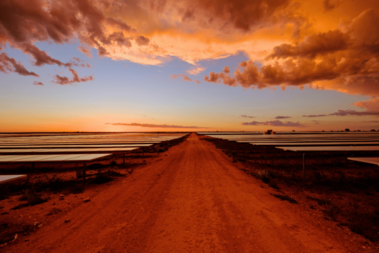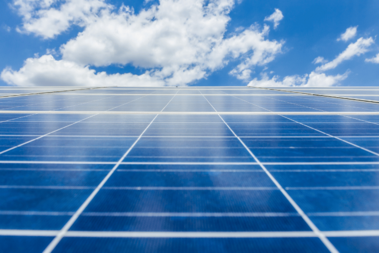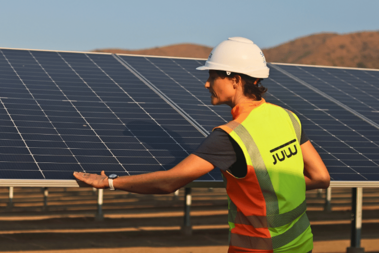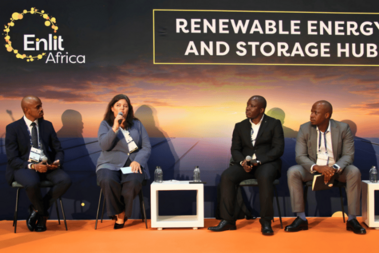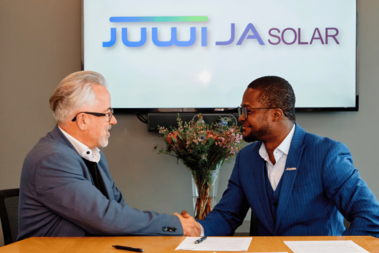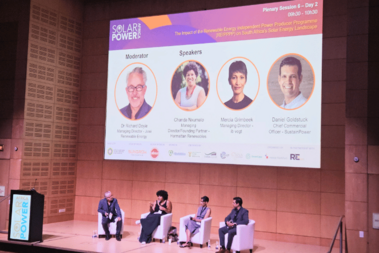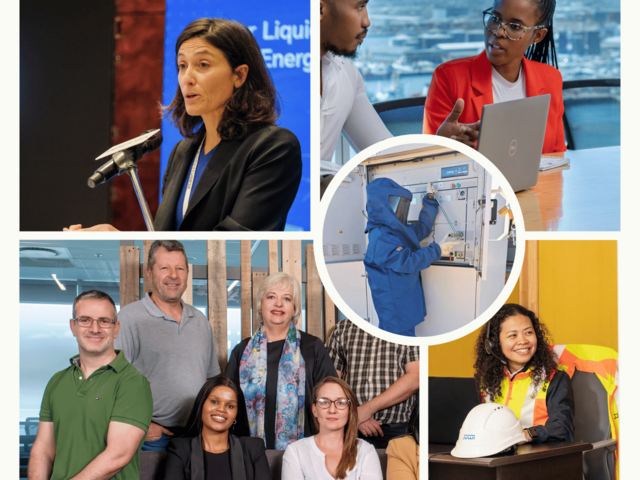
Empowering the Future: Women in Renewable Energy
The rapid evolution of human civilisation is awe-inspiring, yet progress in gender equality and diversity lags. The statistics surrounding women in the energy industry are disheartening. According to the International Renewable Energy Agency (IRENA), women comprise only 32% of the renewable energy workforce, with even fewer in leadership and technical roles. But why is this important, and what can be done about it? We spoke to the women at JUWI South Africa to gain insight.

I’ve worked and studied across Europe and have seen that South Africa is lagging behind in terms of women in the engineering space. The energy industry is evolving, and so should our workforce.
Increasing Diversity: A Solution to the Energy Crisis
The surge in demand for renewables in Africa has led to a critical skills shortage, an issue highlighted at the Africa Energy Forum and many other conferences. Without training, recruiting, and retaining more women in the energy sector, we will struggle to meet demand and miss a vital opportunity to advance South Africa.
“I believe that women play a pivotal role in the energy migration from fossils to renewables. Especially in South Africa, where we have a dual energy and employment crisis. This is not renewable energy deployment the way they have done it in first world countries. We cannot just optimise for price. We need to uplift communities, create local industry, and build meaningful growth. We need an innovative approach,” stated Nicola Cencelli, Senior Business Development Manager.
The Need for Innovation and Problem Solving
South Africa faces unique challenges in addressing climate change and the energy transition, which cannot be solved by merely copying solutions from developed markets. Diverse perspectives are essential for innovative problem-solving. A study by BCG showed that companies with more diverse leadership teams had significantly higher innovation revenue. Similarly, a McKinsey & Company report found that companies in the top quartile for gender diversity are 25% more likely to experience above-average profitability.

Innovation does not materialise out of one pot of people who think the same way and do things the same way because that is how it was done in the past. We need everyone of all races, ages, genders, and religions if we’re going to make real progress
Challenges Faced by Women in Renewable Energy
Biases, both conscious and unconscious, are at the core of challenges related to inclusivity. These biases are not only held by men but also by women against themselves.
As Marketing Officer, Alice Cumming shared: "No one makes it to adulthood without accruing a mountain of biases. It’s our responsibility as adults to reflect on how we think and make an effort to change harmful or untrue thoughts. To give a silly example I’ve always been a big fan of superhero and action movies, so if someone were to ask me to picture a person saving the world, my brain will automatically produce an image of a white man. This won’t change overnight but being aware of it (and rewatching Wonder Woman!) is a start."
Women often face stereotypes that they are less competent than their male counterparts, especially in technical fields, and many report feeling that their opinions are undervalued.
“I have worked for many RE companies in South Africa and abroad, either as a consultant or employee, and I find that women are often seen as weaker in commercial negotiations and in general. This is changing but not fast enough” said Tracy
Compounding gender stereotypes are performance bias, where women’s achievements are undervalued and failures over-emphasised, and affinity bias, where people favour those similar to themselves.
Mpotsepe Mosala, an Electrical Engineer and Zone Supervisor, has indicated her sense that…“Women in the engineering field constantly have to prove themselves, while men are more likely to be given the benefit of the doubt.” .
Addressing Deeply Ingrained Biases
Most people acknowledge that increased diversity in the renewable energy field will only benefit the whole, and although things are improving progress is still slow. Both men and women need to be mindful of their thoughts and actions toward people of different genders.
“Your first instinctual reaction to a person or situation is known as your ‘conditioned response’. Our subconscious has been programmed to associate certain things with women and other things with men. You have to make the effort to engage your logical brain to decide whether that instinctive reaction is fair and accurate. We don’t run our computers or smartphones on software that's decades out of date, so don’t let your brain run on old programming. Keep reflecting, keep updating, advised Alice.
Creating company cultures where people are comfortable discussing gender diversity issues is crucial.
“Although more and more people are becoming aware of their biases, we all still have blindspots and it’s important to help each other see them. Usually all that’s needed is a little nudge, combined with humour, to help them realise that what they just said or did could have been done differently. It’s generally well received when done respectfully and with the goal of improving things for everyone,” said Astrid, a Senior Business Development Manager.
Increasing the Visibility of Women in Energy
Raising the visibility of successful women in renewable energy can inspire future generations and provide mentorship opportunities, encouraging more young women to pursue careers in this field.

We need more visible female role models in the renewable energy sector, especially women of colour.”
Making the effort to find female role models and follow their career journeys will go a long way towards inspiring women and helping them change their unconscious biases. Tracy shared that she is a big supporter of civil engineer Naadiya Moosajee who co-founded Women in Engineering. Follow Naadiya on LinkedIn here.
Creating Support Systems and Opportunities for Women in Energy
Although there are a number of admirable programmes and strategies that have been created to support women in the energy field, research by GEGAfrica notes that there is often a disconnect between policy formation and implementation.
“Women can play a key role in creating an inclusive and sustainable energy future by putting supportive legislation into place, improving educational opportunities, removing socioeconomic hurdles, and encouraging women to take on leadership roles” shared Alana Willoughby, Business Development Administrator.
“We need more support for women and girls to encourage them to study maths, science and to use a “systems-thinking” approach to problem solving. Alongside formal study; grassroots, youth & community empowerment are highly important facilitators to cement this progress. Land custodianship, local energy production and local supply chain management are key areas requiring new leadership - woman will play a pivotal role in transforming our industry” emphasised Tracy.
Every entity, whether private or public, has the power to contribute to gender equality, as Avril explains:
“JUWI recently gave 14 female students from Barberton TVET (Technical-Vocational Education and Training) college the opportunity to get hands-on experience as electrical construction operators. They assisted with the construction of our latest solar plant for Pan African Resources, and we believe the experience will help them gain their full qualifications and first jobs.
Advice for Women Entering the Renewable Energy Industry
Entering a historically male-dominated industry is challenging, but the opportunity to drive real change cannot be ignored.
“Get in the field because you love it, not for the money. Understand that there will be tough challenges and be prepared to overcome them. Prepare your mind and body to grow in this field,” advised Mpotse.
Avril reminds women to be confident in their abilities: “Women should not doubt or limit themselves. They should be part of changing the narrative, especially in the renewable energy sector.”
Tracy highlights the importance of thinking big, being different, and looking to the future:
“Set up your own company, Women Owned businesses are in high demand in South Africa due to positive discrimination and Broad-Based Black Economic Empowerment policies. The world is also changing and with the invention of Artificial Intelligence, many jobs are going to be different or redundant in the future. Spaces to pay attention to include:- the servicing of renewable energy plants, habitat management; smart-grids & off-grid solutions; marine energy, and energy from waste. Learn about everything. We need to think smartly and holistically. In short, we need the female brain!”
“We also need diverse brains, including those people who are neurodivergent, all of those individuals who have historically been marginalized;” commented Tracy.
Finally, Alana shares this very practical and important reminder:

Educate yourself. Start by gaining a solid understanding of renewable energy technologies. Take courses, attend workshops, seek mentorship for guidance and support, and be resilient and persistent. You have a voice, a valuable one.



